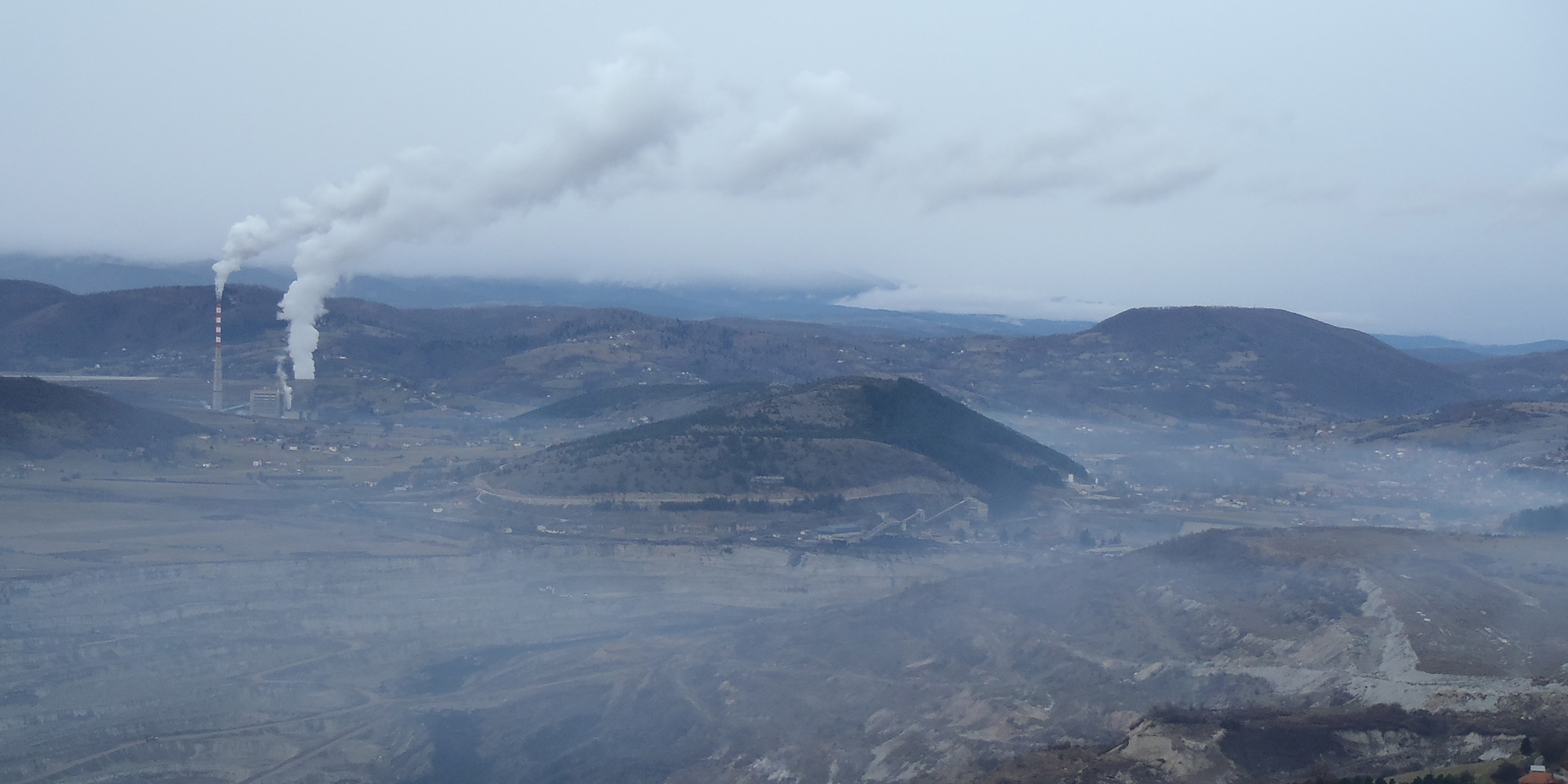Montenegrin Premier Duško Marković announced that the Government is no longer pursuing the planned Pljevlja II lignite power plant, making Montenegro the first Western Balkan country to officially cancel a new coal project.
Diana Milev-Čavor, EcoTeam | 18 September 2019

View of Pljevlia and the existing power plant.
For almost three years, since it lost its main source of funding in October 2016, the Pljevlja II project has been in limbo. A further nail in the coffin came at the end of 2018, when the Montenegrin government and state-owned electricity company broke off a deal with Czech company Škoda Praha to build the plant. Yet until now, the Government has been reluctant to write off the project completely, instead putting forward proposals about co-firing with biomass.
That this is a long way from becoming reality became clear yesterday at the Miločer Development Forum in Cetinje, where Premier Marković was quoted as saying “We decided to refrain from using the significant coal reserves in the Pljevlja region to build a second unit at the power plant, although this is a large investment and would bring a large number of jobs. We said no, we will build something in line with our economic policy, sustainable development and preservation of the environment. Maybe in 50 or 100 years future generations will think up some new technology for using coal in combination with biomass in a way that does not harm the environment”.
This news follows an announcement by the Government in June that Montenegro had experienced 10 days in a row of coal-free electricity generation – quite a breakthrough for a country that traditionally produces around 40 per cent of its electricity from lignite.
There are still plenty of problems to solve in Montenegro’s energy sector, for example reducing pollution from the existing coal plant, reducing energy wastage, and securing a just transition for the Pljevlja region.
But the announcement that Pljevlja II is finally cancelled at least serves as a good example. Neighbouring countries like Bosnia and Herzegovina, Serbia and Kosovo are still pushing forward new coal plants, against all environmental and economic logic, and often in contravention of Energy Community Treaty rules on environment and subsidies.
The Montenegrin government’s courage in grasping the bull by the horns and admitting that coal is not the way forward must now be followed by its peers. Let us hope this is the first of many such announcements in the months and years ahead.
Never miss an update
We expose the risks of international public finance and bring critical updates from the ground – straight to your inbox.
Location: Montenegro
Project: Coal in the Balkans | Pljevlja II lignite power plant, Montenegro
Tags: Montenegro | Pljevlia | balkan coal
